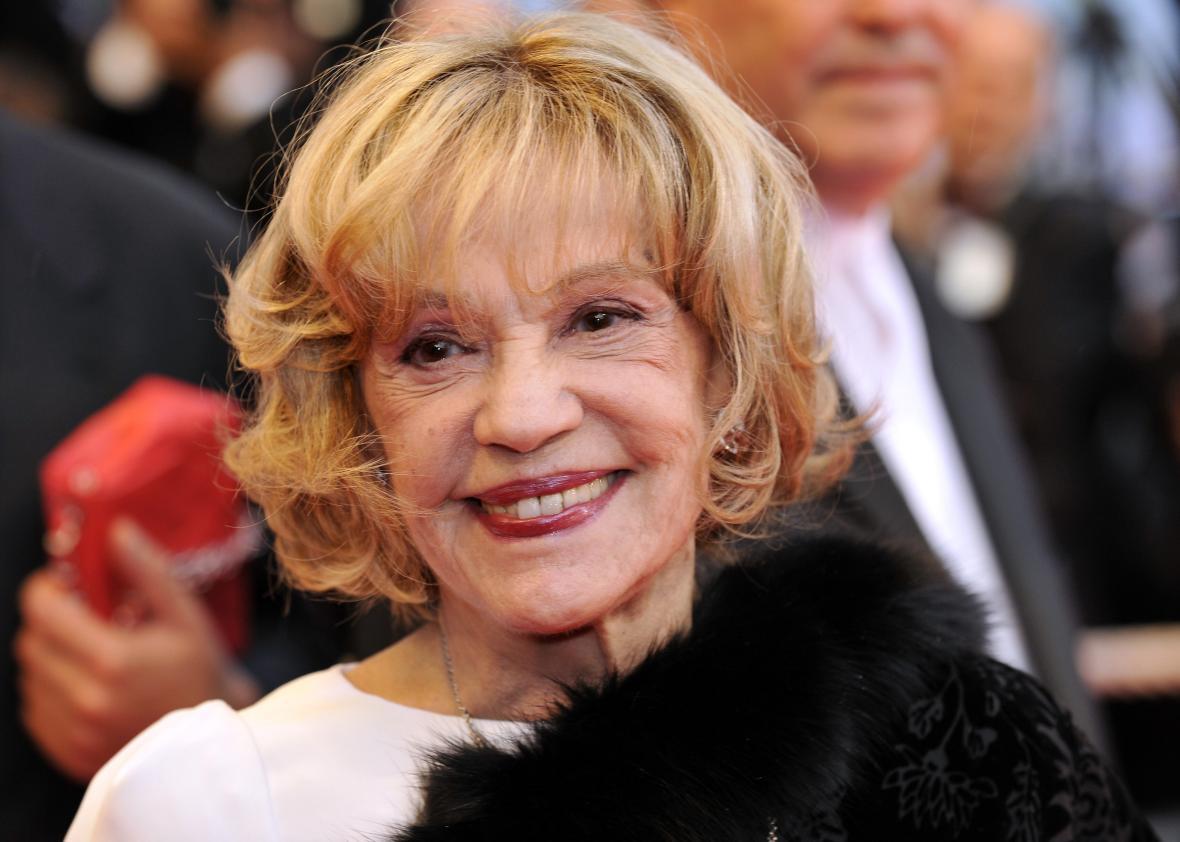Jeanne Moreau, one of the iconic faces of the French New Wave, has died at the age of 89. Her death was confirmed by the office of French president Emmanuel Macron, who said in a statement, “We could say about Jeanne Moreau that a part of cinema legend is gone. But her whole work was precisely about never freezing her art into a mythology, and never locking herself into the respectable status of the ‘great actress.’ She had in her eye a sparkle that deflected deference and inspired insolence, freedom, the turbulence of life that she liked so much and that she will long make us like.”
Moreau’s career preceded the nouvelle vague, in movies like Jacques Becker’s 1954 Touchez Pas au Grisbi, and it lasted long after—her last of more than 100 screen roles came in 2015’s My Friends’ Talents. But her smoldering intelligence and flinty inscrutability made her an indelible presence in New Wave touchstones like François Truffaut’s Jules and Jim and drew the attention of directors like Orson Welles, Luis Buñuel, Michelangelo Antonioni, and John Frankenheimer. In her playful tribute to movie history, One Hundred and One Nights, Agnès Varda cast Moreau as the first ex-wife to Michel Piccoli’s Simon Cinéma, a dazzling figure too powerful to stay tied down for long.
The role of Jules and Jim’s enigmatic Catherine was perhaps Moreau’s greatest, and the fullest exploration of Truffaut’s fascination and discomfort with powerful women. Both men, lifelong friends, fall in love with her, and she passes between them almost at whim, her romantic and sexual prerogatives beyond either their or the film’s ability to comprehend. As Moreau told me in 1999, on the occasion of a retrospective of Truffaut’s movies:
I knew we were doing something very special and very graceful. I had no idea the effect it would have on people, but I knew the effect it had on me. I thought, “At last someone understands that when people say, ‘I’ll love you forever’ it’s a lie.” I knew it was a lie from the beginning, since I was a child, and suddenly I had the luck to give life to a character who expresses interests for two different men, and that didn’t mean she didn’t love both.
Although Truffaut and Moreau remained lifelong friends, they only made one more movie together, 1968’s The Bride Wore Black, based on a Cornell Woolrich novel about a female serial killer. But in movies like Antonioni’s La Notte, Buñuel’s The Diary of a Chambermaid, and Welles’ Chimes at Midnight, in which she played Henry IV, Part 2’s Doll Tearsheet, her fortitude and her pain were almost more than the screen could hold. Offscreen, she kept company with writers like Jean Genet, Henry Miller, and Marguerite Duras; she also starred in Duras’ film Nathalie Granger and later played her in Josée Dayan’s Cet Amour-Là. She directed two films of her own: 1976’s Lumière and 1979’s The Adolescent, as well as a TV documentary on the actress Lillian Gish—perhaps one of few figures in history who could match the magnetism of her on-screen presence.
Moreau, who also had a substantial career on the stage as both actor and singer, was an officer of the Legion of Honor and, in 2000, became the first women inducted into France’s Académie des Beaux-Arts. She was married twice, once to the American director William Friedkin, a two-year union that ended in 1979, and she is survived by a son, Jérome Richard.
